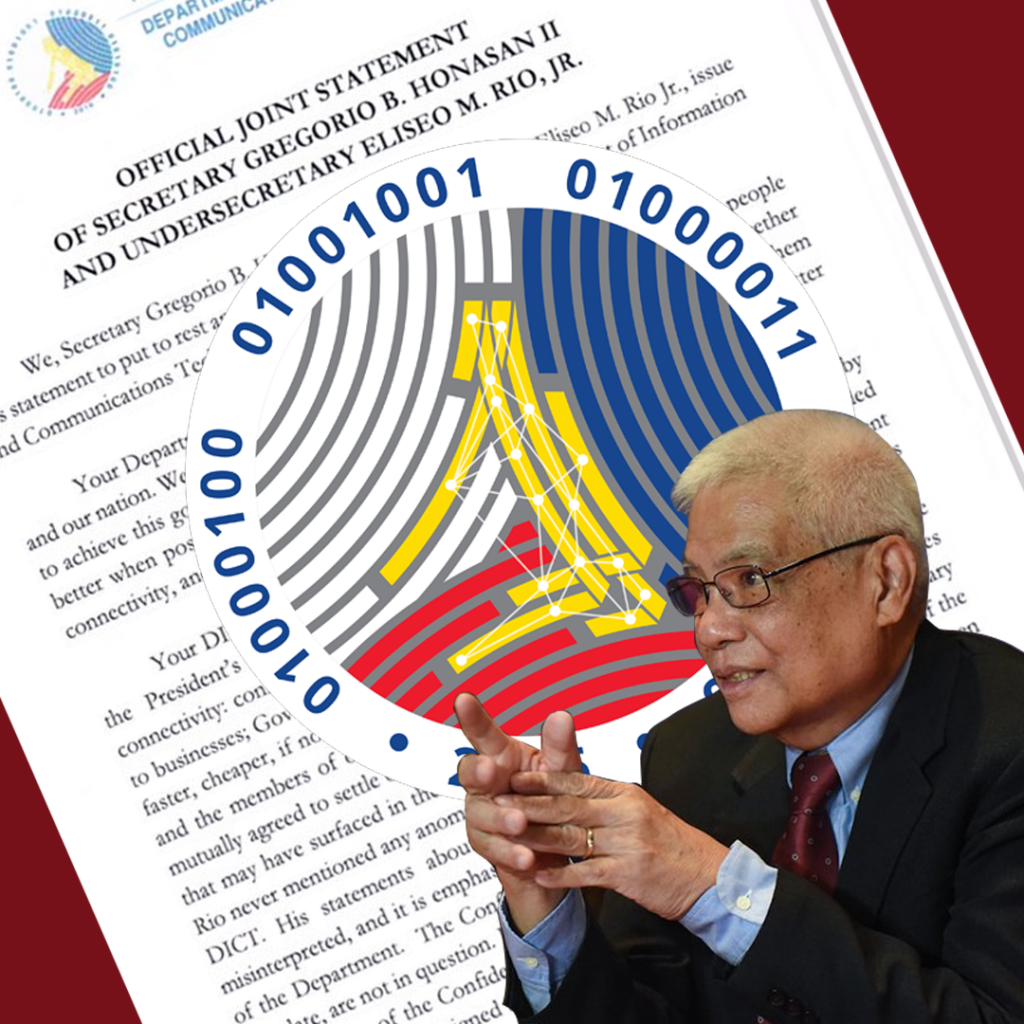Curious confidential funds — and media’s curious loss of interest

THE RESIGNATION of a public official at the level of undersecretary does not usually make news.
But when Eliseo Rio, Jr., undersecretary in the Department of Information and Communications Technology (DICT), announced he was leaving his post, it caused a bit of a stir in major newspapers. He filed his resignation on January 30, which made news on February 3 when he told journalists the reasons for his departure.
Rio explained that he had been kept out of key decision-making, and was not informed about the release of PHP300 million as confidential funds to DICT Secretary Gregorio Honasan. Talking further to the media, Rio maintained DICT had no mandate to do intelligence work and had no budget for confidential funds.
Two newspapers, the Philippine Daily Inquirer and The Philippine Star, gave this story prominence, with the former giving it banner treatment. But the story was hardly noted in primetime newscasts.
Honasan and Rio issued a joint statement four days later on February 7. The statement said that confidential expenses were “lawful” as a line item in the national budget, and that the funds were used only for “monitoring and surveillance of systems and network infrastructure.” Meanwhile, Rio said he was awaiting the president’s decision on his resignation.
The statement halted any further reporting on the issue in the newspapers that had called attention to the resignation. Apparently, the same journalists who thought there was something suspicious about the resignation found no reason to investigate further.
But the public had reason to ask: Was there really something anomalous in the use of the funds, or its release to Honasan? The Inquirer was on point with its editorial judgment: “. . .the matter of the use of hundreds of millions of pesos in DICT funds for surveillance should be investigated thoroughly – and the public duly informed of its findings. From there, the stringent requirements of accountability should be swiftly met, or this nation is truly the basket case it is now alleged to be.”
An opinion piece in the same broadsheet said the joint statement didn’t really settle anything and only called for further investigation.
Unasked, unanswered questions
Rappler‘s podcast on February 13 said questions about the DICT issue remain. The discussion recalled that the Commission on Audit itself flagged the release of the PHP300 million, and that the DICT was allocated PHP800 million in confidential funds for 2020, the second highest amount next to the Office of the President’s PHP2.25 billion. A separate Rappler report showed that DICT’s confidential funds were non-existent in the draft of the 2020 National Expenditure Program and that the amount is larger than that of the Philippine Drug Enforcement Agency (PDEA).
Hardly any media attention was given to the fact that “confidential” funds are not subject to the usual auditing checks and that the DICT received a dramatic increase of these funds only during Honasan’s term.
If details such as these only come to a dead end, what was the point of calling attention to the undersecretary’s resignation in the first place?
Leave a Reply